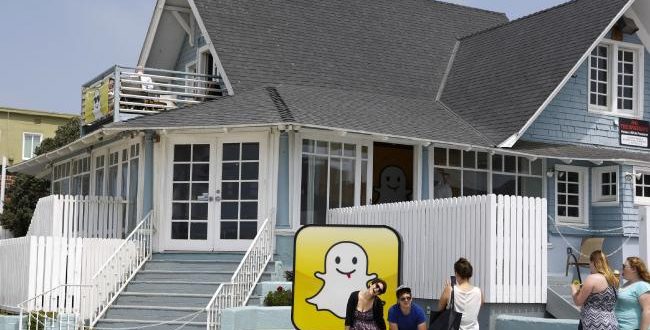As Snap’s blockbuster IPO reverberates around the tech community, Los Angeles is firming as an alluring alternative to Silicon Valley, with powerhouse tech outfits including Elon Musk’s SpaceX, Hyperloop One and Riot Games joining Hollywood A-listers to build a community combining the best of both worlds.
Tom DeSanto, the producer of X-Men, X-Men 2 and the Transformers trilogy, told The Australian the appetite for tech in the “city of angels” was growing, especially since the Venice Beach-based Snap was the year’s hottest IPO.
“It was two separate worlds for a while. Tech was in northern California and Hollywood in southern California, but now with Snap having tremendous success with their IPO it’s an opportunity for each industry to make the other stronger and more profitable,” he said. “Tech has the eye of Wall Street and Hollywood is great at thinking outside the box. You get the two working together and you’ve got something pretty special.”
Venture capitalist Peter Pham is one of LA’s tech luminaries, having already pulled off some big exits including Dollar Shave Club, a firm that was started by two men who were annoyed by the cost of razor blades and became a billion-dollar behemoth. Mr Pham is a co-founder at Science Inc, an LA-based start-up studio that specialises in scaling up small businesses.
“Snap’s IPO is clearly going to make an impact, and in fact it already has just by being a presence here,” Mr Pham said. “Having 1000-plus people based in LA changes how people think about the ecosystem.
“The fact Snap can be built outside of Silicon Valley is an eye-opener.”
According to Mr Pham, while the Bay Area trades in technological innovations like semiconductors, LA trades in creativity and imagination. Snap is a perfect example of that flair.
LA’s rising tech ambitions are being noticed in Australia as well, with Trimantium Capital managing director and venture capitalist Phil Kingston declaring the city has some advantages over San Francisco and the Bay Area that have been understood for a while but are only now being exploited.
“With the Snap IPO a whole lot of people are going to get money, people with know-how, who will go off in different directions starting companies, investing and supercharging the community of incubators,” Mr Kingston said.
“Take the weather and lifestyle. The Bay Area has nothing on Santa Monica beach”.
And the lifestyle matters, according to Mr Kingston, with engineers increasingly looking for more than just the pay cheque.
“The bus to Palo Alto is just intolerable. The big companies are getting pressured to get into San Francisco and that’s just very hard,” he said.
The investor, who has previously called on the federal government to look at what it could do with the Hyperloop high-speed transportation network here, also said that some of President Donald Trump’s trade policies may be beneficial for the US tech sector.
“I think the US does need at least a short era of protectionism to reframe its approach with globalisation,” he said.
“The US hasn’t necessarily had the right policy settings for its trade relationships for its last 15 years, and if you contrast them to China, for example, China has insisted on strong local partnerships for any foreign actor.”
One entrepreneur who actively chose to be in LA is Spylight CEO Casper Daugaard, who runs a start-up that allows viewers to track down and buy fashion seen in TV shows and movies.
He says he and his co-founders started the company because they had often watched a TV show or read a magazine and asked ‘what are they wearing?’
“LA really was the place for us,” he said. “Our partners, the owners of some of the world’s most beloved entertainment IP, are all based in Los Angeles. Plus the weather is pretty great.”
Mr Daugaard said while Snap’s IPO would indeed be a boon for the local tech sector, there was something more important going on — an ongoing tension between tech and Hollywood.
“LA is dominated by the entertainment industry, which on average has a very ambivalent relationship with tech,” he said.
While there’s an undeniable thirst for tech and innovation at the highest echelons of the Hollywood studios, mid-level executives are still resistant to change, according to Mr Daugaard.
“This prevents the studios from extracting maximum value from the incredible IP they control and you can see this in their shrinking profit margins,” he said.
As legacy studios lock horns with the likes of Amazon and Netflix, with Apple and Facebook due to join the fray in time, a parallel economy to Hollywood is taking hold.
“With limited creative talent available, this could mean war soon, and I think it’s already started,” he added.
For Mr DeSanto, who is busy in post-production on the next Transformers film, LA still needs to get a lot of the basics right – like infrastructure – before it can fulfil its lofty promises.
“A lot of the problems it needs to tackle have just been ignored, and people are now screaming through ballot initiatives,” he said. “The streets are a mess, the infrastructure is a mess. Politicians make excuses, but people drive down the road here and it was last repaved in 1962. We’ve got to start looking at traffic, we spend hours and hours of human time worth billions of dollars sitting in cars being useless and making ourselves sick with stress.
“California has always been ahead of the curve and provided there’s a renaissance in LA when it comes to the basics, the simple things in human life, then things will really improve.”
Reader comments on this site are moderated before publication to promote lively and civil debate. We encourage your comments but submitting one does not guarantee publication. We publish hundreds of comments daily, and if a comment is rejected it is likely because it does not meet with our comment guidelines, which you can read here. No correspondence will be entered into if a comment is declined.





